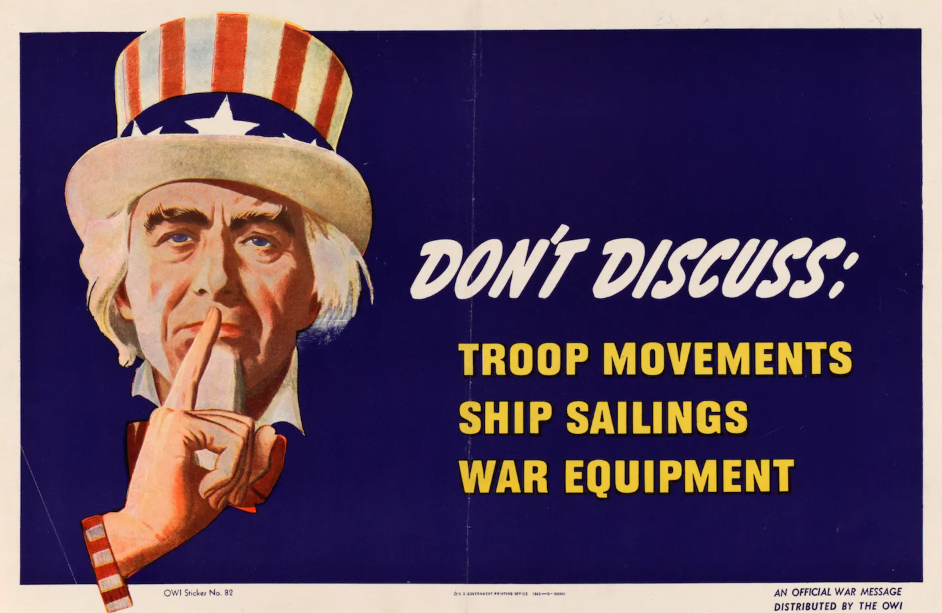From the law firm of Foster Garvey comes helpful reminders as to how ordinary purveyors of onion dip and ale can avoid attracting the attention of the National Football League on the occasion of the entity’s annual Big Game.
With the Super Bowl coming up, it is important for brands looking to capitalize on football-themed promotions to remember that the terms “Super Bowl” and “Super Sunday” are registered trademarks guarded by the National Football League (NFL) more closely than a shutdown corner on a wide receiver.
Because there is a fine line between permissible fair uses of the phrases “Super Bowl” and “Super Sunday” (e.g., in on-air banter and news and sports reports) and impermissible promotional uses that may infringe the NFL’s trademarks, here are some reminders to keep you from going “offsides.”
Each year when the Solemn Occasion rolls around, I refrain from rooting for individual teams, and instead pull for local independent food and drink operators to make a few bucks from the public’s seemingly inexhaustible enthusiasm for future brain injury creation.
Wait, I can use those words…can’t I?
The NFL’s self-important pomposity left me behind years ago, and it is ceaselessly annoying to consider a small business struggling to get by, but earnestly considering Foster Garvey’s admonitions lest a random strike by a corporate sporting monolith knocks them off kilter.
It’s a case for widespread civil disobedience, and probably already is, but I digress.
Even a serial Grinch like me evolves, and in recent years I’ve softened my stance and deign to watch an occasional pro game. The business of pro sports actually interests me to a greater degree than the action on the field, but like many people who never played the game apart from sandlot scruffling, the gladiatorial aspects can be mildly amusing just so long as we don’t confuse any of it with the U.S. Constitution (football is an elective, folks, not a required course).
Boys and girls, let’s be extra careful out there. Here is an article authored for my blog in 2013.
—
Brain injuries, the NFL, and my indifference…to football.
Several times over the past two or three years, I’ve posted links to stories about brain injuries in sports, primarily football, but with at least one sobering report on concussions in hockey. Readers can search for them if they’re interested.
As a prelude to what follows, note that I’ve never been a diehard football fan. The last college game I saw in its entirety (“watched” would be assuming a level of sobriety that was not at all the case) was the last one I attended in person, a University of Louisville game in the late 1980’s. I’ve always liked professional football far better, but even so, my attention span over a period of two decades has waned steadily, to the point where in recent years, I’d seldom see more than a quarter or two until the playoffs started.
This year … well, not even that.
In fact, with the (protected terminology deleted) coming today, I’ve seen exactly zero games all year. Maybe a few seconds of live action on a television screen at a bar, but that’s it. The playoffs began, and still there was no compelling interest. Tonight, barring the unexpected, I won’t tune in to the big game. I’ll have to miss Beyonce, too.
(When the Black Eyed Peas played the Super Bowl halftime a few years ago, I thought it was a Marcel Marceau tribute band. Maybe that’s because I had the TV on mute)
Finally it has dawned on me that while there wasn’t much interest in football on my part before, now there’s virtually none, and it is the increasingly well-documented, regrettable, lifelong physical toll suffered by the players which is to blame for my turning away.
It isn’t just the pros. The more I read about youth football injuries, the greater understanding we have as to how, even only occasionally, difficult subsequent lives, erratic adulthoods, and those suffering from dementia far before their time might be explained.
Gene Demby’s NPR essay is an eloquent statement. I never was a fan, so it’s easier for me. I’ve just entirely stopped watching.
Brain Injuries And The NFL: A Fan’s 5 Stages Of Grief, by Gene Demby (National Public Radio)
A few years ago, before “CTE” was as much a part of football conversations as “quarterback rating” or “wild card spot,” I had a conversation with some friends about unsettling news stories that linked the sport to brain injury.
As we spoke, an avowed hater of sports piped up. “Football, as it’s currently played, is completely indefensible,” she said.
I bit my tongue at the moment, but I later talked about it the way any dyed-in-the-wool Eagles fan might: “She hates sports and football! What does she know? These cases could be isolated. And anyway, these dudes play of their own volition!”
I look back on that conversation with a kind of mortification now, given all the stuff we’ve learned about football-related brain injuries and chronic traumatic encephalopathy since then. She was right.
Anyone familiar with the Kubler-Ross model would recognize my defensive apoplexy as denial, the first stage of reckoning with a terrible reality. It’s followed by anger, bargaining, depression and acceptance.




















